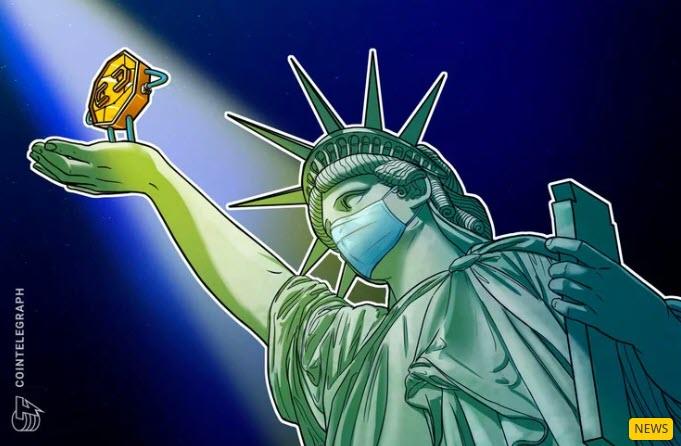House Stimulus Bill Creates “Digital Dollar” To Send Virus-Aid To The ‘Unbanked’
Update (1115ET): Coindesk’s Nikhilish De reports that mentions of a “digital dollar” in a coronavirus-related relief bill before the U.S. House of Representatives have been scrubbed.
House Democrats’ latest version of the “Take Responsibility for Workers and Families Act,” revealed late Monday, does not contain any language around a “digital dollar” in its section on direct stimulus payments.
* * *
As CoinTelegraph’s Kollen Post detailed earlier, amid contentious debate over the massive stimulus package in response to the coronavirus pandemic, Democrats in the United States House of Representatives look to implement the digital dollar to streamline payments to U.S. citizens outside of the traditional financial system.
image courtesy of CoinTelegraph
A digital dollar for direct payments to families
A draft of the legislation circulating as of March 23 proposes the creation of digital wallets for U.S. citizens to be maintained by the Federal Reserve within a section entitled “Direct Stimulus Payments for Families.”
Under the draft bills shared last week, dubbed the “Take Responsibility for Workers and Families Act” and the “Financial Protections and Assistance for America’s Consumers, States, Businesses, and Vulnerable Populations Act,” the Federal Reserve could use a “digital dollar” and digital wallets to send payments to “qualified individuals,” consisting of $1,000 for minors and $2,000 to legal adults (to every adult earning less than $75,000 a year, at which points the payments taper off).
These payments would last until the economy recovers.
While the proposal does indicate the option of providing checks, it would require member banks of the federal reserve to maintain digital dollar wallets for all clients.
Both bills employ identical language around the digital dollar suggestion.
“The term ‘digital dollar’ shall mean a balance expressed as a dollar value consisting of digital ledger entries that are recorded as liabilities in the accounts of any Federal Reserve bank; or an electronic unit of value, redeemable by an eligible financial institution (as determined by the Board of Governors of the Federal Reserve System),” the bills read.
The massive stimulus package and current gridlock
This version of the bill seems to come from the office of Speaker of the House Nancy Pelosi (D-CA). Bloomberg Law puts the bill’s origin date as March 22.
The bill is massive, with all extant versions clocking in at well over a thousand pages and aiming to distribute upwards of $1.8 trillion.
On both March 22 and 23, Democrats in the Senate blocked the Republican version of the bill (which did not mention digital dollars). The Democrats criticized the bill for favoring bailouts to big businesses at the expense of everyday citizens.
As of close of business on March 23, Speaker Pelosi was expected to present a counteroffer in the form of a bill laying out $2.5 trillion in stimulus funding.
Cointelegraph reached out to the offices of Speaker Pelosi and other representatives but had received no response as of press time. This article will be updated should responses come in.
Tyler Durden
Tue, 03/24/2020 – 11:07
